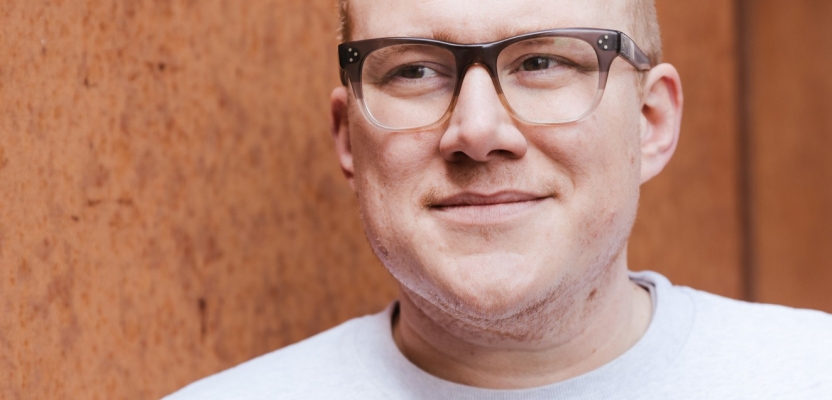Dan Crowder is Founder and Managing Director of design recruitment agency Craft. Based in Manchester, Dan founded Craft in 2014. With its network of the best creatives in the industry, the Craft ambition is simple: to enhance the studios, careers and lives of everybody they partner with. They recruit for world-class design agencies and in-house studios, and find creative people jobs they love. Craft’s core areas of expertise are: Graphic Design & Brand, Digital Design & Motion Graphics, Client Services & Agency Operations and Brand & Design Strategy. Craft currently operates in four key cities: Manchester, London, Leeds and New York.
Tell us a bit about your role! Is there a “typical” day?
My main role is to steer the business. I ensure the Craft teams are always moving in the right direction, thinking about how we’re growing and what we’re doing as a group to aid that growth. A real priority at the moment is balancing the short-term demands with long-term goals – for our business and for our clients. I try not to get too involved in the nitty gritty unless necessary, which comes with a learning of stepping out of people’s ways when they are more equipped for the job.
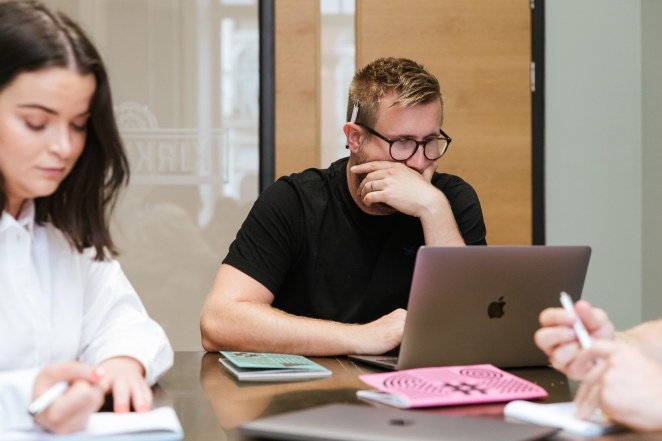
We’ve got a really clear vision for where we want Craft to be in 3 years’ time, and ‘smaller’ tasks like planning our next agency day are just as vital as creating building blocks for long-term visions. Saying this, I still enjoying making the coffee now and again…
What was the biggest challenge in getting to your current position?
I hadn’t worked as a director at a recruitment agency before Craft – so really, I had to make it up as I went along. I worked hard to find mentors to look up to and to turn to for advice – for example, Simon Forster, Founder and ECD at Robot Food and Co-Founder at Stories & Ink. At key stages of growth, I was always able to give him a ring and ask, ‘what do you do at this point?’
That support is invaluable; a huge lesson I’ve learned is that you can’t build a business by yourself. However, having never been in this role worked to my advantage as well. I have a fresh perspective and don’t have that instinct to mirror someone else’s tactics. Asking myself ‘what is it that I don’t know?’ ‘What do I need help on, what do I need to hear?’ was crucial in moving Craft forward.
What is your personal background and what role did it play in your career?
I studied philosophy at university which, by its very nature, is about questioning and challenging. It gave me a natural curiosity that allowed me to confront the norms of the design recruitment industry. It’s quite often that I find myself asking ‘why not?’ – which was my mindset when we first started thinking about doing business in the US. Twelve months later, we’ve built solid relationships and achieved fantastic results for US-based design agencies at the top of their game.
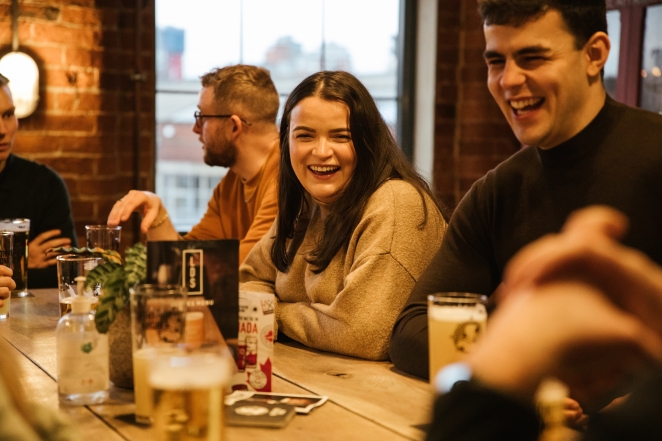
I am continually questioning what ‘good’, or ideally ‘great’, looks like at work. Question-asking is key at Craft because it always helps to challenge the culture we’re in – and positively challenge our clients – improving our processes and bringing about outcomes we’re proud of.
What is your biggest career-related win? What is your biggest loss?
Hmm, I don’t really buy into there being any one big win. There isn’t a miracle moment – for me, there’s just a lot of making the right decisions and enjoying the journey. Slow progress, a ticking wheel of growth, is where the success lies.
We do have plenty of ‘pinch me’ moments though – when we’re sat with a studio we’ve admired for years, helping find them people who are perfect fits for their team – this is what we live for. It’s the same with loss – I feel like the biggest thing here is learning. It sounds a bit like a false prophet but when things don’t go right, learn from it.
Which individuals and/or agencies do you gain inspiration from? Do you have any heroes in the industry?
The agency that comes to mind here is Ragged Edge. One of their recent projects, Wise, has stuck in my head: it’s not just the silky visuals of the new band identity but the fact that they work with clients that make a difference, that’s what’s remarkable.
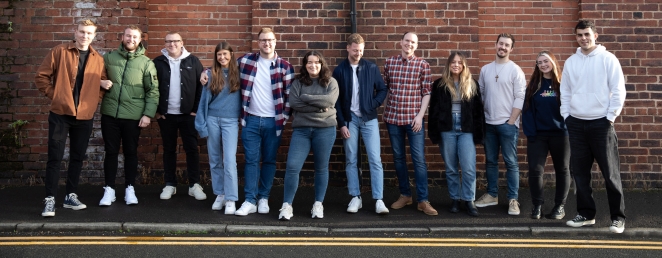
They’re a brand agency that prides themselves on ‘doing things differently’, committed to challenging the status quo because they know it leads to world-changing results, and I love that. Simply, they’re killing it.
If you could go back to your teenage years, would you have done things differently? Do you have any regrets?
I definitely have regrets, especially from my teenage years, who doesn’t! This isn’t necessarily something I could go back and change but I was always very envious of people who knew what they wanted to do even if they didn’t end up doing it.
Many of my friends confidently knew they wanted to be chefs, graphic designers, even an accountant (who wants to be an accountant?). I was so envious of that clear drive, the instinct to find your calling, that purpose. I felt like I had no idea!
If you weren’t in your current industry, what would you be doing?
Living in a campervan at the foot of the Alps, skiing every day. Bliss.
What’s your one big dream for the future of the industry?
For brand design to get the respect it deserves and continue to thrive. There are some incredibly talented people, from a diverse range of backgrounds, that are attracted to this exceptional industry – I want them to stick around! It’s the people that enrich the design world and that ensures its continuation. For the design economy to continue to grow, that always helps. Oh, and I hope the robots don’t come for our jobs.
What are your top tips for aspiring creative professionals?
Best of three:
- Side hustles are valuable and as long as it doesn’t drain you, it’s worth it. For design agencies looking for the ‘unusual’, side hustles are often the most interesting part of your portfolio.
- You don’t need to be a designer to work in design. In the creative industries, you can take up, down, or sideways routes into many different roles.
- It doesn’t matter what you studied or your career background – it’s about your creativity, your passion, and how coachable you are (even a creative director is constantly learning).
What are your top tips for other creative leaders?
Switch from short-term thinking to long-term, and act as if you’re a business of 50 rather than 20. If you put all your time into solving temporary problems, however demanding, you will always be three steps behind in terms of the future. Look ahead and delegate correctly – as a leader you need to be thinking long-term, and about aspects of the future that others haven’t given mind to yet.
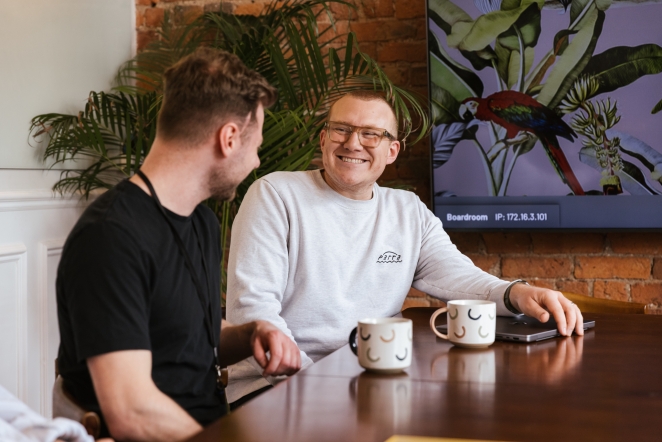
This protection falls under strategy too; think about proactive hiring and succession planning – when it comes to your team, don’t wait for resignations to fill vital roles, plan ahead and reach out to those you know will add value to your team. Expansion then comes naturally.
When you think about your team, what is the thing that matters to you the most?
It’s important that they feel a sense of purpose and belonging, that they’re developing and challenging themselves to be the best they can be. Having pride in the work they do is paramount – it’s important to me that the projects I’m giving them are fulfilling. This motivation is largely sustained through a sustainable work-life balance, too.
We have a 4-day week at Craft, and it allows us to prioritise the important stuff, work hard in the time that we are at work, and fully relax on the hours off. It’s also an area of pride for me that many of the team have followed their dreams and ended up working in the design industry (whether they had a design background or not); they make it better.
Do you have any websites, books, or resources you would recommend?
Jim Collins’ management book Good to Great details the importance of companies’ leap into ‘great’. He has influenced my business perspective quite a lot. Our most recent read at Craft’s Constantly Curious Book Club, Brene Brown’s Born to Lead, is a favourite – it’s one for everyone and it really hones in on not pretending to know the answers, just ask the question.
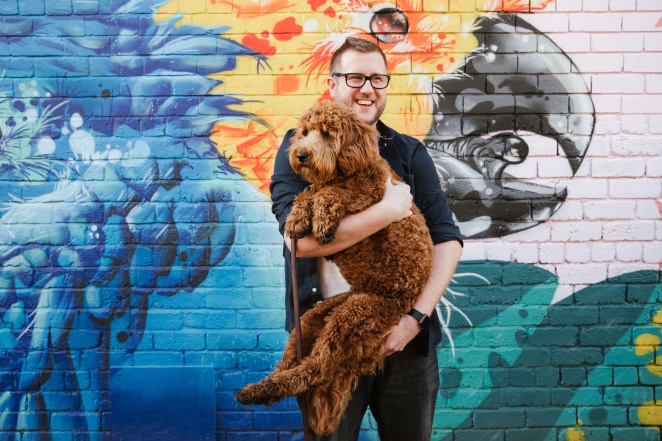
I really like the language and habits she uses – whenever you start a new project ask, ‘what does ‘done’ look like?’ We’ve also all been obsessed with Brian Tracy’s Eat That Frog. Our Principal Recruiter Fionn has adopted a ‘frog hour’ where she attacks all her frogs. That’s modern-day innovation to be sure.
